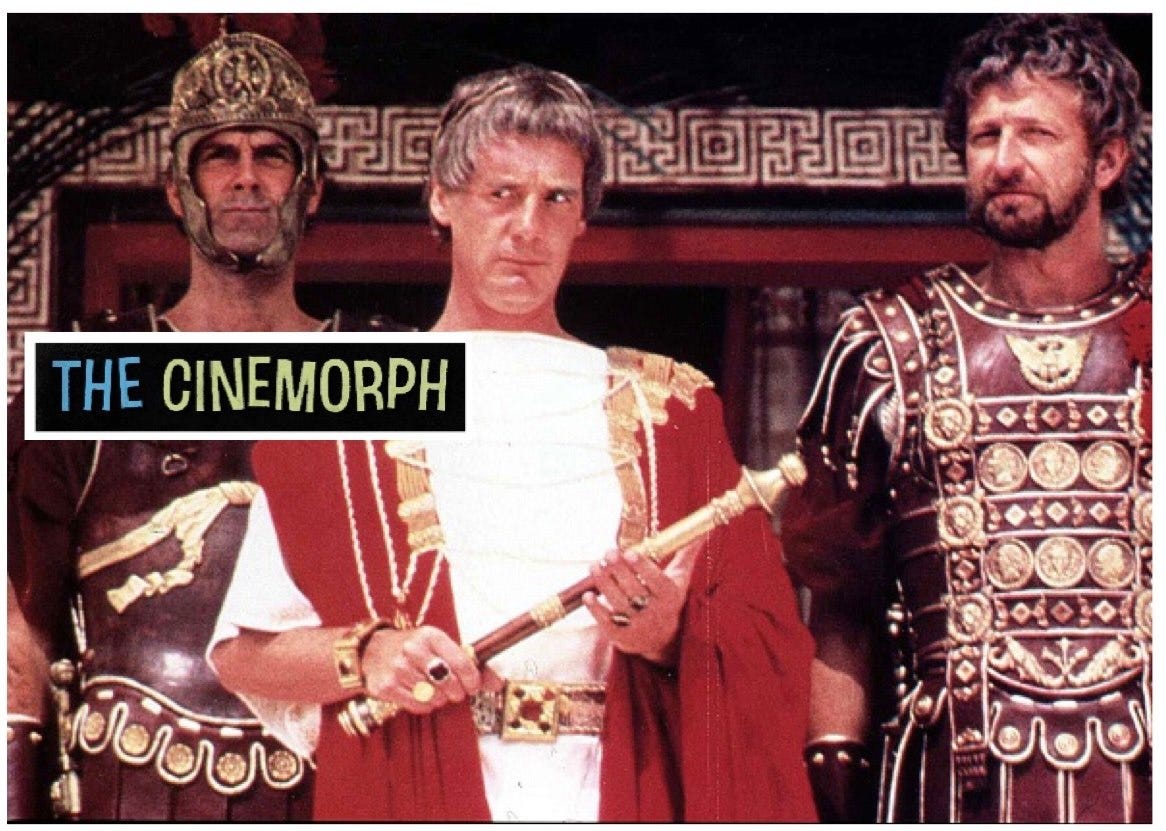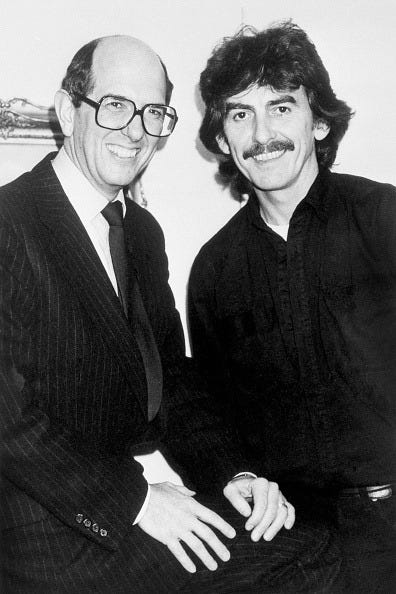When A Beatle Saved Some Pythons
How George Harrison mortgaged his house to help his friends make a movie and accidentally started a film studio.
It’s…
A story about…
Monty Python’s Flying Circus!
And a Beatle.
Monty Python’s Flying Circus premiered in Britain on the BBC in 1969, right around the time the Beatles broke up. They became a phenomenon, not only wildly popular, but wildly, consistently excellent. They were also wildly controversial. There are those who say that the Pythons influence on comedy was equivalent to the Beatles’ influence on popular music. I think that’s pretty accurate.
The Pythons were big Beatles fans (who wasn’t?) and the Beatles returned the favor. Particularly George Harrison. The Quiet Beatle was a huge Python fan. In a 2016 Rolling Stone piece, Python’s Terry Gilliam claimed that Harrison believed that the Beatles “spirit” went into Python.
Monty Python’s Flying Circus ran for four seasons on the BBC. In 1972 they released a film, And Now For Something Completely Different, a repackaging of some of the series’ more memorable sketches, (Re-issue, Re-issue, Re-package, Re-evaluate the songs…) and in 1974 the show hit American television screens via PBS, causing a sensation.
That same year, between production of the show’s third and fourth season, the Pythons decided to make a “proper “ film, with all new material, and a consistent theme. Monty Python And The Holy Grail and was a parody of Arthurian legend. It was shot on a shoestring budget (less than two million dollars in “today money”) and is one of the funniest movies of all time. Often quoted, always quoted, endlessly quoted, never repeated.
As the story goes, during the press tour for Holy Grail someone asked the Pythons if they had any ideas for a follow-up movie. Eric Idle joked it would be called, Jesus Christ: Lust For Glory. Everybody laughed, but then got to thinking, “Hey, that’s not a bad idea.”
The resulting film, Monty Python’s Life Of Brian, is NOT a parody of the life of Christ. Early on in the writing process, the Pythons all agreed that, whether you were a believer or not, Jesus’ teachings were all quite good and decent and that there wasn’t much there to make fun of. Jesus Christ does make a brief appearance in, and is treated with the utmost respect.
The final script for The Life of Brian told the story of a man born at the same time in the same place as Jesus and is thought to be the Messiah, but isn't. Nor does he want the job. That’s the story they wanted to tell, but they had to film it first. And that’s when the problems started. The film was to be financed through British entertainment conglomerate EMI. Just days before filming started, some say as close to two days before filming started, the chairman of EMI, Lord Bernard Delfont, finally read the script, was horrified, and pulled out of the project.
According Randy Lewis, writing in The LA Times, Eric Idle and the film’s producer John Goldstone, undeterred, went to America to raise the projected four million dollars needed to make the film (about seventeen million dollars today). They raised half from United Artists, but were still down a cool two million. So, Eric Idle called the richest person he knew, George Harrison.
After conferring with his business partner, Denis O’Brien, Harrison took out a loan, putting up Friar Park, his beloved home, as collateral. Together, Harrison and O’Brien formed a production company to finance Life of Brian called Handmade Films.
It was a wise investment, Brian made back five times its budget and Handmade Films went on to become a major force in the British Film Industry, producing such classics as Time Bandits, Mona Lisa, The Missionary, Monty Python Live At The Hollywood Bowl and The Long Good Friday among others.
I personally could not find any comments from Lord Delfont on the film’s success, but it’s safe to assume he had a strong opinion. During the film’s “Always Look On The Bright Side Of Life,” finale, you can hear Idle’s character muttering, “I told him, I said to him, Bernie, I said, they’ll never make that money back.”
There is a great documentary about Handmade Films called An Accidental Studio.
If you enjoy The Cinemorph, please subscribe. I'M BEGGING YOU!!!!!!





